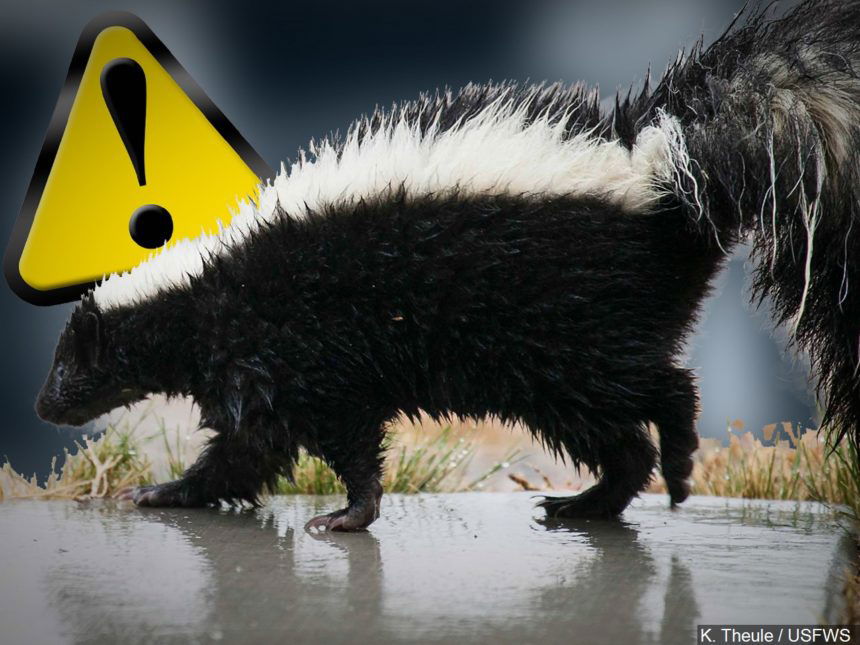Health officials: Skunk tests positive for rabies in El Paso County

EL PASO COUNTY, Colo. (KRDO) -- In a report Friday, El Paso County Public Health said a skunk has recently tested positive for rabies, bringing the total to three confirmed cases in skunks in 2020.
Rabies is more prevalent in the summer months, prompting health officials to remind residents to never touch or feed wild and stray animals.
If you're bitten or scratched by an unfamiliar animal, it's important to seek medical care immediately to get a preventative rabies vaccination.
The disease is common in bats, raccoons, skunks and foxes. Squirrels and rabbits are considered a rabies risk, according to public health.
"Rabies affects the brain and other parts of the central nervous system, causing brain swelling and damage, and is nearly always fatal once symptoms appear," reads a statement from public health Friday. "Rabies spreads primarily through the bite of rabid animals, via infected saliva. Rabies can also be spread when saliva from an infected animal gets into open wounds, cuts or enters through membranes of the eyes, nose, or mouth."
EPC Public provided the following tips to stay safe and how to recognize sick wildlife:
Take these precautions to prevent rabies:
- Vaccinate your pets against rabies by using a licensed veterinarian. Rabies shots must be boosted, so check your pet’s records or talk to your veterinarian.
- When walking or hiking with your dog, protect them and wildlife by keeping your dog on a leash.
- Keep cats and other pets inside at night to reduce the risk of exposure to other domestic animals and wildlife. Keep dogs within your sight (in a fenced yard, or on leash) during the day while outside.
- Contact your veterinarian promptly if you believe your pet has been exposed to a wild animal.
- Do not touch or feed wild animals. Wild animals such as skunks and foxes adapt to residential environments if food is available – please do not leave pet food outdoors.
- If people or pets are bitten or scratched by an aggressive wild or unknown animal, call your doctor and report to El Paso County Public Health’s bite report portal.
- Bat bites can be difficult to detect. If you find bat in your house and are unsure how long it has been there, do not release the bat. Contact Public Health at 719-578-3220.
- If you encounter a lost or stray dog or cat, contact the Humane Society of the Pikes Peak Region for options at (719) 473-1741.
How to recognize sick wildlife:
- Healthy wild animals are normally afraid of humans.
- Sick animals often do not run away when spotted by people.
- Wildlife suffering from rabies will often act aggressively and violently approach people or pets.
- However, sometimes rabid animals are overly quiet and passive and want to hide. If they are hiding, leave them alone. Rabid wildlife might also stumble or have trouble walking.